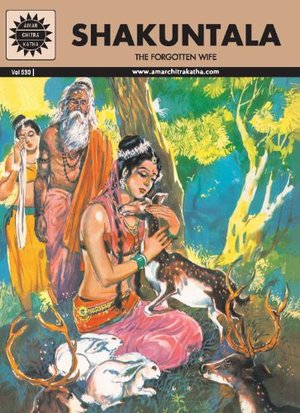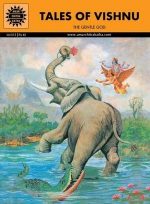Description
Shakuntala
28 Apr 2010
by Dolat H. Doongaji, A.K. Lavangia
- Publisher : Amar Chitra Katha
- Language : English
- Pages : 32
- ISBN-10 : ?8189999486
- ISBN-13 : 9788189999483
When King Dushyanta first saw Shakuntala, he was struck by her incomparable beauty and gentle character. He made her his wife and vowed to take her back to his place. But a curse from the sage Durvasa erased her memory so completely from his mind, that he failed to recognise her. Much later, when the curse was broken he realised his mistake, but it was too late… or so it seemed to be. The story of Shakuntala first appeared in the Mahabharata. It was later adapted into a play by the Sanskrit dramatist and poet, Kalidasa.
![]() Reviews
Reviews
Average Rating:
4.2 rating based on 531 ratings (all editions)
ISBN-10: 8189999486
ISBN-13: 9788189999483
Goodreads: 12928336
Author(s): Publisher: Amar Chitra Katha
Published: 7/3/2007
When King Dushyanta first saw Shakuntala, he was struck by her incomparable beauty and gentle character. He made her his wife and vowed to take her back to his place. But a curse from the sage Durvasa erased her memory so completely from his mind, that he failed to recognise her. Much later, when the curse was broken he realised his mistake, but it was too late... or so it seemed to be. The story of Shakuntala first appeared in the Mahabharata. It was later adapted into a play by the Sanskrit dramatist and poet, Kalidasa.
4.2 rating based on 531 ratings (all editions)
ISBN-10: 8189999486
ISBN-13: 9788189999483
Goodreads: 12928336
Author(s): Publisher: Amar Chitra Katha
Published: 7/3/2007
When King Dushyanta first saw Shakuntala, he was struck by her incomparable beauty and gentle character. He made her his wife and vowed to take her back to his place. But a curse from the sage Durvasa erased her memory so completely from his mind, that he failed to recognise her. Much later, when the curse was broken he realised his mistake, but it was too late... or so it seemed to be. The story of Shakuntala first appeared in the Mahabharata. It was later adapted into a play by the Sanskrit dramatist and poet, Kalidasa.







